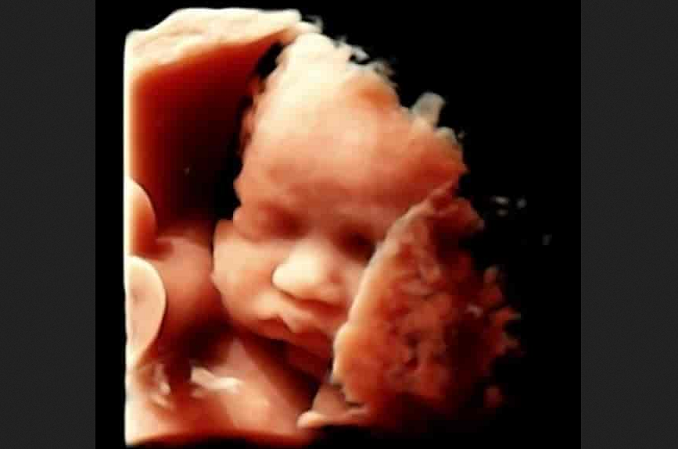
On Thursday, August 1st, the Utah Supreme Court handed down a ruling impacting the Utah abortion trigger law. What does all of this mean? What does it mean for abortion law in Utah, and what does it mean for the thousands of babies aborted here in our state?
The Utah Supreme Court did not rule on the underlying case but rather on the preliminary injunction that has blocked our Utah abortion law for the last two years.
We have anxiously awaited this decision. For over two years, Utah’s abortion law has been enjoined by the courts, and every day that it is enjoined means the deaths of more and more pre-born babies. During this two-year period, over 6,000 babies have died in brutal abortion procedures. We had prayed that this ruling would bring an end to the slaughter, but that was not to be.
After the reversal of Roe v. Wade, we had such high hopes for a safe haven for pre-born babies here in the state of Utah. How did we get here? It has been a long and winding road, so let’s start at the beginning.
In 2020, Senator Dan McCay and Representative Karianne Lisonbee ran and passed our trigger abortion law. This law is basically a life-at-conception law that protects pre-born babies from abortion, with the exceptions of rape, incest, life of the mother, or fatal fetal abnormalities.
Click here to sign up for pro-life news alerts from LifeNews.com
At the time that this bill was passed, Roe v. Wade prevented it from going into effect, so we placed a “trigger” on the law, which simply means there was a clause that said, if and when Roe v. Wade was overturned, the law would go into effect.
At the time, I had no hope of Roe v. Wade being overturned in the near future, but I was very wrong. It was only two short years later that the Dobbs v. Jackson Women’s Health case was heard by the Federal Supreme Court. The Supreme Court overturned Roe v. Wade on June 24th, 2022, and our trigger law became the law of the land.
The ruling came out on a Friday morning, and by Friday afternoon, the law was implemented. Utah was abortion-free. Unfortunately, that was only true for the weekend. By Monday morning, Judge Andrew Stone of the 3rd District Court had placed an injunction on our abortion law.
Planned Parenthood had filed a lawsuit on the grounds that the trigger bill violated multiple constitutional provisions, and they requested a preliminary injunction blocking the bill from going into effect while the lawsuit went through the courts.
During the hearing on the preliminary injunction, Judge Stone stated that irreparable harm may come to Planned Parenthood if the law were enacted. Judge Stone was apparently blind to or indifferent to the irreparable harm that would come to thousands of pre-born babies.
Judge Andrew Stone granted this injunction based on there being a “serious issue to be resolved.” An injunction may be granted in our state based on one or more of two grounds: that Planned Parenthood was likely to prevail in the lawsuit or that there were serious issues raised. Judge Andrew Stone used the “serious issue” reasoning.
Since that time, the Utah State Legislature has passed a law that removed the “serious issue” reason from the injunction process. Representative Brady Brammer sponsored this legislation. Had this law been in effect at the time that our abortion law went into effect, we would be in a very different place today. Unfortunately, this legislation was not retroactive, and this lawsuit is governed by the old laws concerning preliminary injunctions.
The Utah Attorney General’s office appealed the preliminary injunction to the Supreme Court. The Supreme Court heard that case on August 8th, 2023.
The AG’s office argued that the injunction should be lifted based on two things: one, that Planned Parenthood had no standing to bring the case; and two, that Planned Parenthood was not likely to prevail because there is no stated or implied right to abortion in the state of Utah Constitution.
On the issue of standing, typically the plaintiff must be a person who could be harmed by the law. Planned Parenthood brought the case on behalf of some theoretical woman. For Planned Parenthood to bring the case on someone else’s behalf is called third-party standing, and it is not typically allowed for this kind of injunction.
As for the issue of a stated or implied right to abortion in the Utah State Constitution, there is none. The word “abortion” is never used, and there is nothing that could be misconstrued to intend a right to abortion.
Planned Parenthood argues that the equality language in our Constitution somehow implies a right to abortion.
Multiple amicus briefs have been filed with the court in this lawsuit, including one filed by Pro-Life Utah. The Pro-Life Utah amicus brief is very interesting. It looks at the history of our state and our ancestors’ intent, pulling from old newspaper articles and other historical information. Abortion was frowned upon in our state’s history, and one could not in their wildest dreams imagine that our predecessors had any intent to enshrine abortion rights in our Constitution. The state of Utah has had laws on its books making abortions illegal since the enactment of its constitution.
Nonetheless, on August 1st, the Utah Supreme Court ruled 4 to 1 that the Third District Court was within its power to grant the injunction based on the “serious issue” basis.
Only Chief Justice Durrant voted to revoke the injunction based on standing. Judge Durrant said that the law did not allow for third-party standing, and therefore Planned Parenthood was not eligible to bring the lawsuit forward. Unfortunately, the other four justices voted to uphold the injunction based on the “serious issues of constitutionality.”
In a 93-page opinion, not one mention was made of the rights or the harm that would come to pre-born babies. Our Utah Supreme Court justices chose the bottom line of a profitable organization over human life.
Where do we go from here? The case will now go back to the Third District Court. Judge Andrew Stone has retired, and Judge Stormont will now preside. It is likely both sides will ask for a summary judgment, and the Third District Court will then have to rule on the issue of whether or not there is a right to abortion under the Utah State Constitution.
Whatever happens at the 3rd District Court, no doubt the case will then be appealed to the Utah Supreme Court and go back to these five justices again. If the State of Utah wins, Planned Parenthood will appeal. If Planned Parenthood wins, the State of Utah will appeal. In any case, look for this lawsuit to be back at the Utah Supreme Court in approximately one year.
In the meantime, thousands more innocent pre-born babies will die in horrific and brutal abortions here in the State of Utah.
Up until now, many of us have felt very good about the ultimate outcome of this case, but there is cause for concern. The statement in the Utah Supreme Court opinion that there are “serious issues of constitutionality” should concern all of us greatly. This signals that these justices are actually considering that our state constitution may imply a right to abortion. It should also be of great concern to all of us that the courts are using abstract principles to create new “rights.”
I, for one, am guilty of taking our judicial system for granted. I’ve paid very little attention to retention votes or judicial appointments. It has been a hard lesson for many of us to learn the importance of paying attention to this branch of our government. I do not mean to say that the judicial branch of our government should be based on politics or ideology. In fact, just the opposite. The role of the courts is to apply existing law enacted by the people and their representatives. It is not the role of the courts to invent new law based on abstract ideas.
The Third District Court and the Utah Supreme Court will have this case before them again. I hope that they will listen to the oral arguments and apply the intent of Utah citizens and their elected representatives. If they want to be lawmakers, they should step down and run for office. If they want to be judges, their role is very clear.
Please pray for the thousands of pre-born babies whose lives should have been saved by the reversal of Roe v. Wade.
LifeNews Note: Mary Taylor is the President of Pro-Life Utah.

This article was originally published by LifeNews. We only curate news from sources that align with the core values of our intended conservative audience. If you like the news you read here we encourage you to utilize the original sources for even more great news and opinions you can trust!










Comments